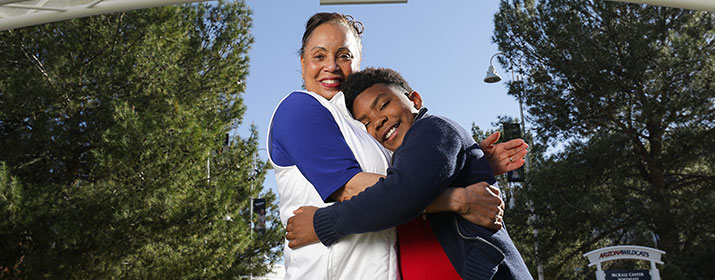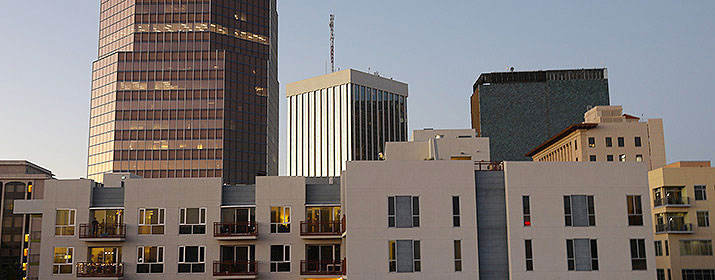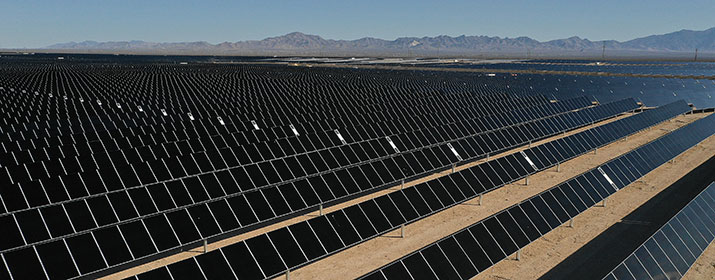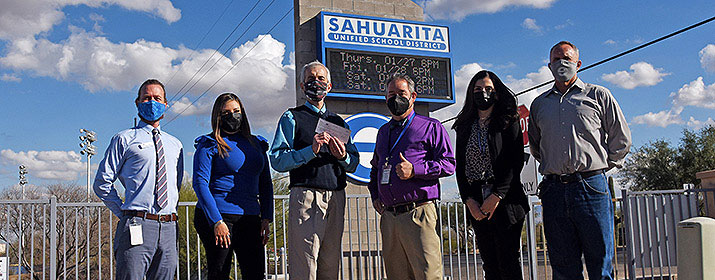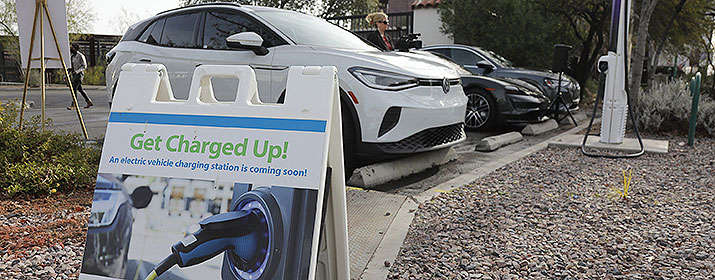
Businesses that want to install charging ports for electric vehicles but aren’t sure where to start can get a boost from Tucson Electric Power, which offers technical support and financial assistance to help them on their electrification journey.
Under a three-year Transportation Electrification Implementation Plan approved by state regulators, TEP is rolling out enhanced programs and incentives to commercial customers this year with the goals of accelerating EV adoption and developing charging infrastructure, especially along transportation corridors, near retail centers and in underserved communities.
“TEP offers a partnership to businesses to help them through every step of the process of planning and installing EV charging ports for their employees or for public use,” said Camila Martins-Bekat, TEP’s Senior Market Development Specialist. “We provide comprehensive technical assistance to commercial customers as well as attractive incentives through our Smart EV Charging program to help them energize their business or organization by supporting EVs.”
In addition to offering rebates that cover up to 75 percent of the cost for installing Level 2 or DC fast chargers, TEP provides:
- a site evaluation
- a list of approved charging port vendors
- installer referrals
- education on best practices for equipment operation
Higher incentive amounts are offered to nonprofits, multifamily housing complexes, and customers in lower income areas to provide more equitable access to the benefits of EV charging for underserved communities.
TEP’s rebates also can help offset the cost of complying with an amendment to the City of Tucson’s Unified Development Code requiring that newly built or expanded multi-family housing complexes, offices and larger retailers be made EV-ready.
Because low-income multifamily complexes face greater barriers to installing EV chargers, TEP will pay up to 100 percent of the cost of their charger installations; in some cases, we may opt to own and maintain them. Multifamily complexes also can claim a $200 rebate for each EV parking space to cover pre-wiring costs in areas where EV pre-wiring isn’t required by code.
“Multi-family complexes are one segment where we see the biggest gap in EV charging,” said Daniel Bursuck, Code Development Manager in the City’s Planning and Development. “Residents living in complexes often don’t have the option of charging their EV from a personal port like a homeowner does, so it’s important that housing complexes and employers are incentivized to install chargers to serve these residents. TEPs rebates help support that.”
Under a new code amendment, the City of Tucson now requires most new commercial developments to include EV stations, outlets, or installation of conduit to support future expansion of EV capacity. TEP’s program can still be leveraged if developers choose to install charging infrastructure that goes beyond the ordinance requirements.
“TEP’s EV plan is really helping to bridge the gap in the number of charging ports we’ll need in our infrastructure,” Bursuck said. “The benefit to our community includes cleaner air and lower costs for EV owners and businesses. We really appreciate the partnership with TEP to help advance our EV Roadmap plan.”
To ensure underserved residents also can benefit from EVs, TEP’s plan includes support and incentives for Sun Tran to continue the transition of its fleet to zero-emission electric buses. TEP will provide the public transit system with up to $75,000 for each charging port it installs to support 45 electric buses.
As more EVs are plugged into our grid, the demand for energy will increase. To plan and prepare for those additional loads and minimize the impact on our grid, TEP will conduct an 8-month study this year.
“The study will identify areas of higher EV adoption and potential loads on our circuits so that we’re able to take steps now to minimize the impact,” Martins-Bekat said. “All the initiatives in our plan will make us and our community ready for the EV revolution.”
Bursuck added that businesses have a lot to gain by adding chargers for patron and public use. “Retailers can potentially attract more customers by offering this amenity. Many times, customers will go to places where they know they can charge their EV while they’re shopping or dining. For hotels, offering EV charging is a huge amenity for people who are traveling.”
Since our Smart EV Charging program began in 2020, more than 500 Level 2 charging ports and 56 DC fast charging ports are under contract to be installed by customers. Some of the more innovative businesses that made the transition include Hotel McCoy, the Loft Cinema and Milagro Housing.


